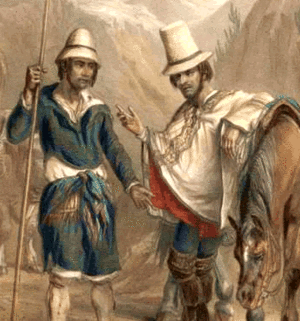Social status facts for kids
In sociology and anthropology, social status is about the honor or respect a person's position has in society. It's like a rank or a level that shows how important or valued someone's role is. This status can come from different places.
Sometimes, people earn their status through their own hard work and achievements. This is called achieved status. For example, a doctor or a scientist earns their status through education and skill. Other times, people get their status simply by being born into a certain family or group. This is called ascribed status. It's a position they inherit and don't choose, like being born into royalty.
Contents
What is Social Status?
Social status helps us understand how people fit into society. It's about how much respect, power, or influence someone has. This can be based on their job, their family, their wealth, or even their education.
How Does Status Work?
Imagine society as a big ladder. Some people are higher up, and some are lower down. Social status helps explain where people stand on this ladder. It affects how others treat them and what opportunities they might have.
- Respect and Honor: People with higher status often get more respect. Think about how people treat a president or a famous scientist.
- Influence: High status can give someone more power to make decisions. They might influence how things are done in a community.
- Lifestyle: Status can also affect a person's lifestyle. This includes where they live, what kind of clothes they wear, and what activities they do.
Achieved Status: Earning Your Place
Achieved status is all about what you do. It's the position you gain through your own efforts. This means working hard, learning new things, and making choices that lead to success.
Examples of Achieved Status
Many roles in modern society are examples of achieved status.
- Becoming a Doctor: To become a doctor, you need to study for many years. You must pass difficult exams and gain experience. Your status as a doctor is earned through this hard work.
- Starting a Business: An entrepreneur who builds a successful company earns status. This comes from their ideas, risks, and dedication.
- Being a Sports Star: Athletes train for years to become the best. Their fame and status come from their athletic achievements.
Achieved status shows that society values effort and skill. It gives people a chance to improve their position.
Ascribed Status: Born Into a Role
Ascribed status is different. It's the position you have from birth or that is given to you. You don't choose it, and you don't earn it. It's often based on things you can't change.
Examples of Ascribed Status
Historically, ascribed status was very common.
- Royal Families: If you are born into a royal family, you have the status of a prince or princess. This is not something you earned.
- Caste Systems: In some older societies, people were born into a specific social group called a caste. They stayed in that caste their whole lives. Their job and status were decided at birth.
- Gender or Race: Sometimes, in the past, a person's gender or race could determine their status. This meant they had fewer opportunities, regardless of their talents.
While modern societies try to be more about achieved status, some elements of ascribed status can still exist. For example, the family you are born into can give you advantages or disadvantages.
Why Does Social Status Matter?
Understanding social status helps us see how societies are organized. It explains why some people have more power or resources than others. It also helps us understand social issues like discrimination.
- Fairness: When status is mostly ascribed, it can feel unfair. People might not have a chance to succeed.
- Opportunity: In societies where achieved status is important, there are more chances for everyone. People can work to improve their lives.
- Social Change: As societies change, so do ideas about status. Many countries now value equality and opportunity for all.
Social status is a key idea in understanding how people live together. It shows how different groups interact and how society values different roles.
Related pages
See also
 In Spanish: Estatus social para niños
In Spanish: Estatus social para niños
 | Ernest Everett Just |
 | Mary Jackson |
 | Emmett Chappelle |
 | Marie Maynard Daly |


